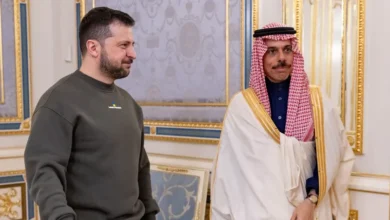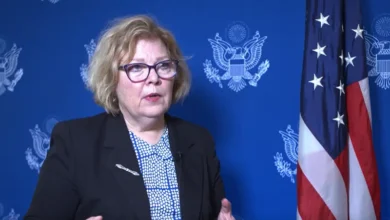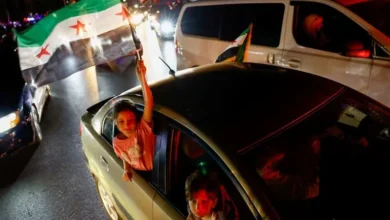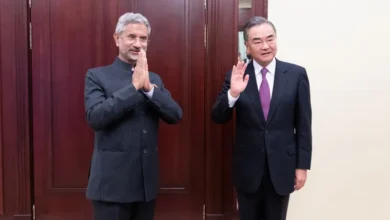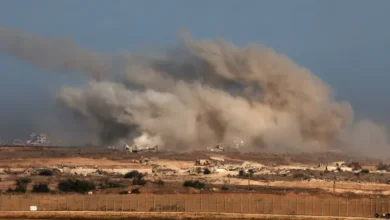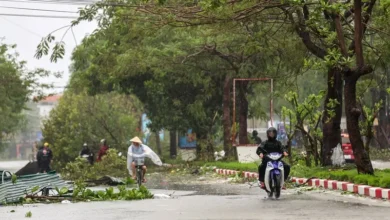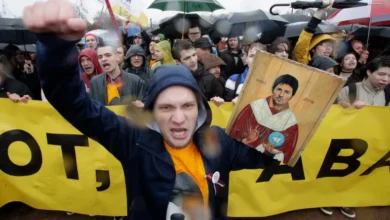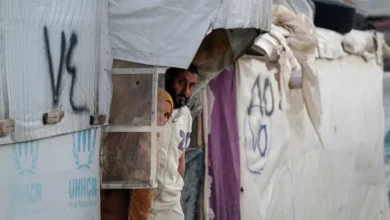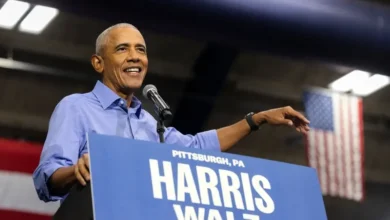‘Devastated, heartbroken’: Against the odds, Gaza aid providers keep going
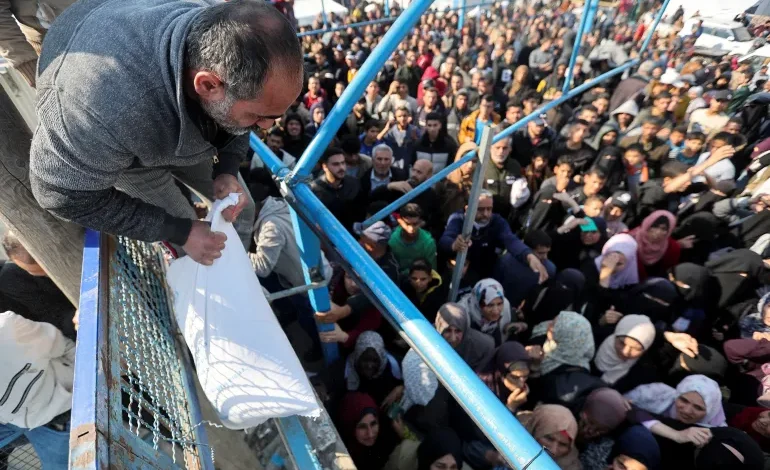
When Hussam Okal sought shelter with his family at a training centre in the southern Gaza city of Khan Younis in October, the United Nations Relief and Works Agency for Palestine Refugees (UNRWA) staffer found the place full with an estimated 22,000 people searching — like him — for safety from Israeli bombs.
“We’re working on two sides. On the one side, we’re trying to keep our families safe, and on the other, we’re trying to serve the displaced people,” he said at the time. “As UNRWA staff, we carry a humanitarian message to try to offer as much assistance as we can.”
It is a task that the UN agency has performed since 1950 in the Gaza Strip, the occupied West Bank, Jordan, Lebanon and Syria, serving as a lifeline for Palestinians. It runs schools, health programmes and more for the Palestinian refugees and their descendants who have been deprived of their homeland since the Nakba when 750,000 Palestinians were forced out of their land during the 1948 creation of Israel.
For decades, its UN blue logo has been a source of support for Palestinians. Now, in Gaza, it is struggling to fulfil its mission, in a war where the UNRWA has suffered like never before.
At least 146 UNRWA staffers have been killed in Israeli bombings, the highest-ever death toll for any UN agency in a war. Others have lost their homes and family members. Like Okal, they have been forced to seek safety in schools and training centres their own teams set up in the past. The war is scarring the agency — and its leadership is not immune.
“I am devastated and heartbroken for the people of Gaza,” Thomas White, the head of the UNRWA in Gaza, told Al Jazeera in an interview. “I don’t quite know how to deal with the emotions of the most profound sense of loss of staff members and community that you know. Gaza is grieving,” White said.
‘Starved of resources’
The UNRWA has worked with Palestinians through the multiple wars and waves of displacement they have endured over the past 74 years.
Yet, the current war is unlike any the agency has witnessed. “UNRWA have planned and rehearsed for such eventualities, we know what we need to do,” White said. “However the scale of death and destruction in such a short time frame, compounded by the fact everyone is trapped in Gaza, with nowhere that is safe, and we are effectively being starved of resources – which has made this enormously difficult.”
Still, how the UNRWA copes with the crisis could prove critical for Gaza’s 2.3 million people, who have suffered a devastating bombing campaign by Israel since October 7, when Hamas fighters launched a surprise attack on southern Israel, killing 1,139 people. Israeli bombardment has killed more than 23,000 Palestinians in Gaza, including nearly 10,000 children.
That includes UNRWA staffers who must settle their spouses, children, siblings and parents, then turn to help the hundreds, sometimes thousands, who had come to the same place for help.
“We’re working in terrifying life conditions,” said Okal. “Whenever there is an air raid nearby, you can hear children of all ages screaming and the adults trying to calm them down.”
‘In memory’
Before the war, a typical day for White would involve meeting key team members, heading out to visit UNRWA staff at the agency’s schools or health clinics and meeting people living in refugee camps.
But on October 13, the agency evacuated from Gaza City to a logistics base in Rafah in the south of the strip amid the bombing. From there, White has been watching his agency come under attack.
Latest reports from the UNRWA indicate that 132 installations have been damaged, including 63 that took direct hits. In addition, 52 schools sustained damage and 53 took direct hits.
In times of war, the UN and its agencies are usually treated as neutral players and peacemakers by all sides. This time, it is different.
Gilad Erdan, Israel’s permanent representative to the UN, has publicly accused UNRWA staffers of links to Hamas. He argued that “the influence of Hamas is so pervasive that it taints the objectivity of reporting and statistics provided”.
White, who has led humanitarian operations in Afghanistan, Iraq, Lebanon, Syria, Libya, Rwanda, East Timor and the occupied West Bank, refused to be drawn into comment on allegations made by Israel’s envoy to the UN. “All we are focussed on right now is doing our job for the people of Gaza in exceptionally difficult circumstances.”
Last month, Qatari Emir Sheikh Tamim bin Hamad Al Thani presented the Doha Forum Award to UNRWA Commissioner-General Philippe Lazzarini, honouring the agency staff for their humanitarian work in Gaza and throughout the region.
UN convoys delivering aid in the north of the enclave have come under fire from Israeli forces, despite being clearly marked “UN” and prior coordination to ensure that they would be protected.
